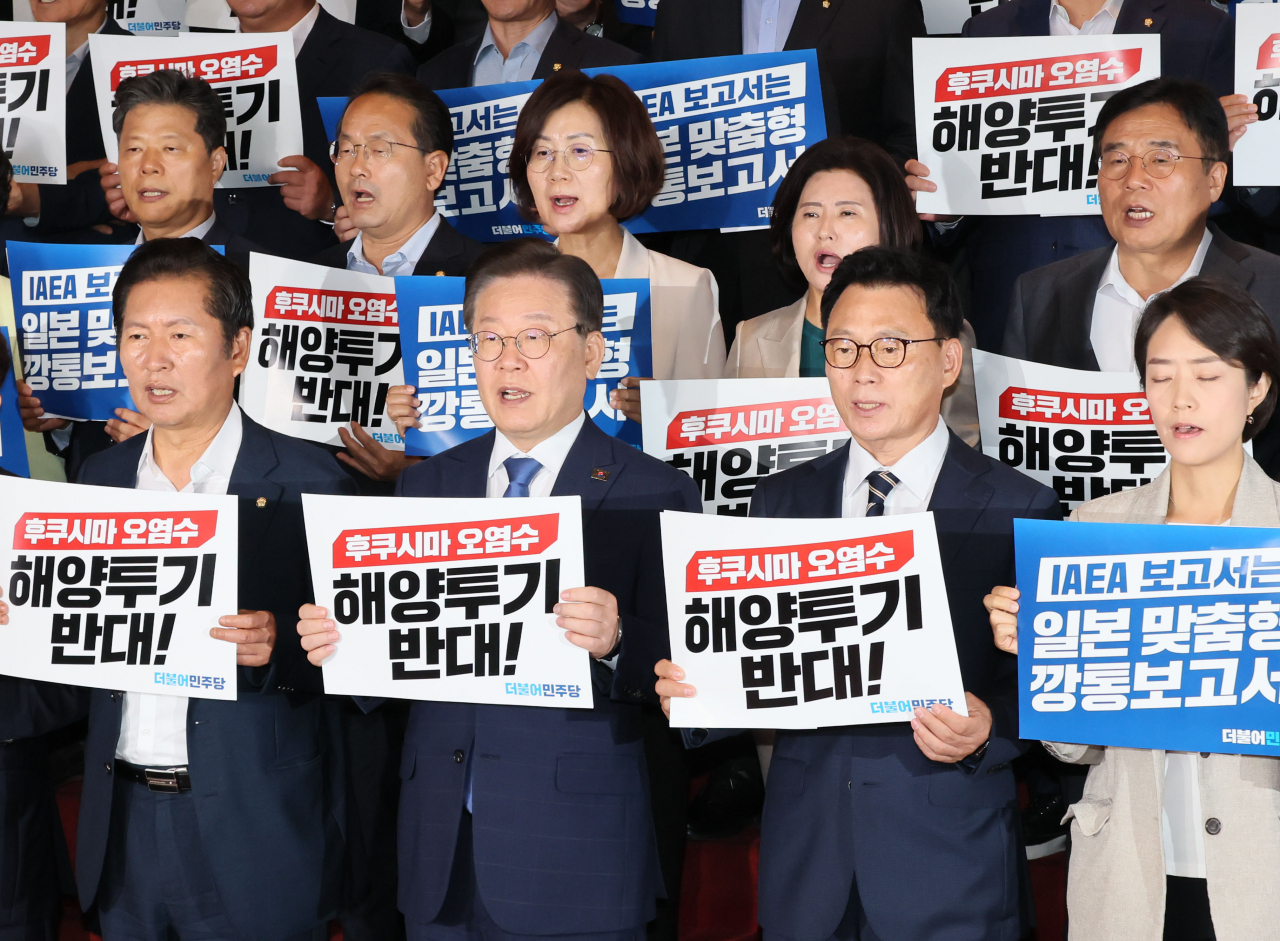 |
Democratic Party of Korea lawmakers condemned the IAEA on Tuesday, saying its report unveiled the day before was “tailored to Japan.” (Yonhap) |
South Korean opposition rejected the International Atomic Energy Agency approval of the Fukushima water discharge on Tuesday, warning of a series of actions at home and abroad to stop the water from flowing.
In a joint statement, Democratic Party of Korea lawmakers said “the IAEA report is no excuse for Japan dumping radioactive waste into the sea.”
“The Japanese government must retract its plan to discharge the Fukushima radioactive wastewater immediately,” the statement read. “The radioactive waste dumping in the sea will exact irrevocable harms not only on Korea, which is closest to Japan, but the entire human race.”
Rep. Woo Won-shik, on a hunger strike in protest of Japan’s water release plan for the ninth day on Tuesday, staged a one-person rally near the Japanese Embassy in Seoul. Several other Democratic Party lawmakers announced the same day they were joining Woo on the hunger strike.
Woo, the head of the Democratic Party committee for blocking water discharge by Tokyo, said in a radio interview Tuesday that the IAEA report was “designed to benefit Japan.” While the IAEA found Japan diluting and treating the water to safe levels, Woo said, “Radioactive contaminants aren’t sugar. They can’t be watered down.”
A delegation of about a dozen Democratic Party lawmakers are planning a trip to Tokyo next week to protest outside the Japanese prime minister’s residence.
The Democratic Party slammed the IAEA final assessment as “substanceless” and “unverified, as though it was written by a contractor for the Japanese government,” about two hours after the report’s release Monday afternoon.
Rep. Lee Jae-myung, the Democratic Party’s chief, said the verdict from the IAEA was based solely on data submitted by Japan. He suggested the IAEA failed to review the Advanced Liquid Processing System -- the filtration system for removing radioactive contaminants -- facilities at the Fukushima plant.
Before the IAEA presented its final report, the Democratic Party had consistently accused the UN atomic watchdog of having a “pro-Japan bias” rather than being scientific and objective.
“We don’t have to see the report to know what it’s going to say,” one of the Democratic Party leaders told reporters after a leadership meeting Monday.
Rep. Sung Il-jong, who is leading the ruling People Power Party’s response to the Fukushima water discharge, said the Democratic Party was “denying science” by rejecting the IAEA findings.
“The IAEA assessment issued Monday isn’t something that was reached overnight. It is an outcome of six rounds of interim reports made over nearly two years by scientists from 11 countries, including Korea,” he said.
He added the ruling party and the government would be following up on the IAEA conclusions with measures to reassure the Korean public.







![[Today’s K-pop] Blackpink’s Jennie, Lisa invited to Coachella as solo acts](http://res.heraldm.com/phpwas/restmb_idxmake.php?idx=644&simg=/content/image/2024/11/21/20241121050099_0.jpg)